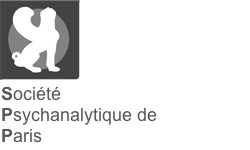|
Résumé :
|
Taking the lead from Lacan's experimentum mentis (Seminar VII) of adopting the point of view of the Last Judgement toward a psychoanalytic reconsideration of ethics, this paper traces the subjunctive forms of a conversation between a Moroccan psychoanalyst and a Qurʾanic scholar and religious therapist in their respective ways of engaging the ordeal of madness as a fundamental dimension of subjectivity, ethics, and politics. Implicitly proposing a framework for welcoming the Islamic problematic of the soul in psychoanalysis as an opening to thinking otherwise, it discusses their differing vision of psychic life, and their common attempt to understand the forms of subjective destruction that haunt our historical time. For the psychoanalyst this translated in an ethical, clinical, and existential engagement with psychosis, which took concrete form in his reformist experiment at the psychiatric hospital in Salé-Rabat, in the 1980s, and in his search to find ways of ‘listening’ to the unconscious at religious sites and liturgies; for the Imam in a theological, ethical, and clinical investment with the dialectic of the soul, its ‘battlefield’ (jihād al-nafs), and through the figure of ‘soul choking’ (taḍyīq al-nafs).
|





